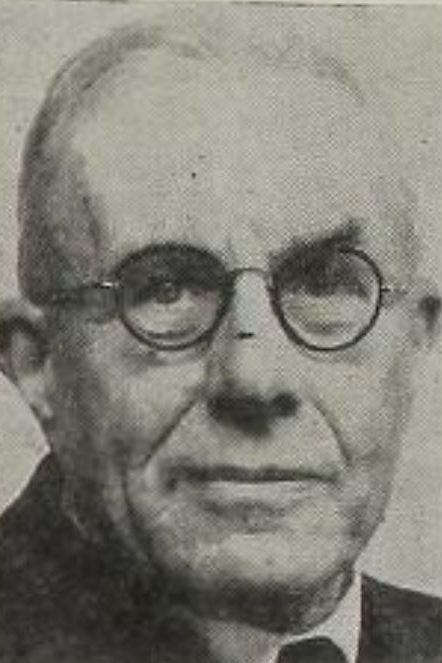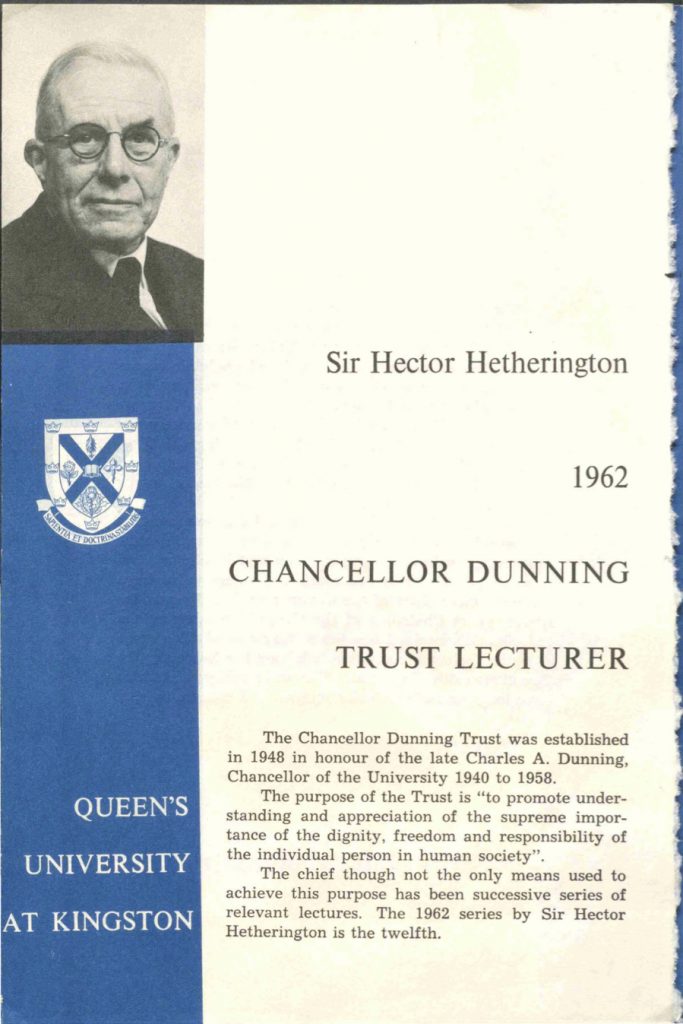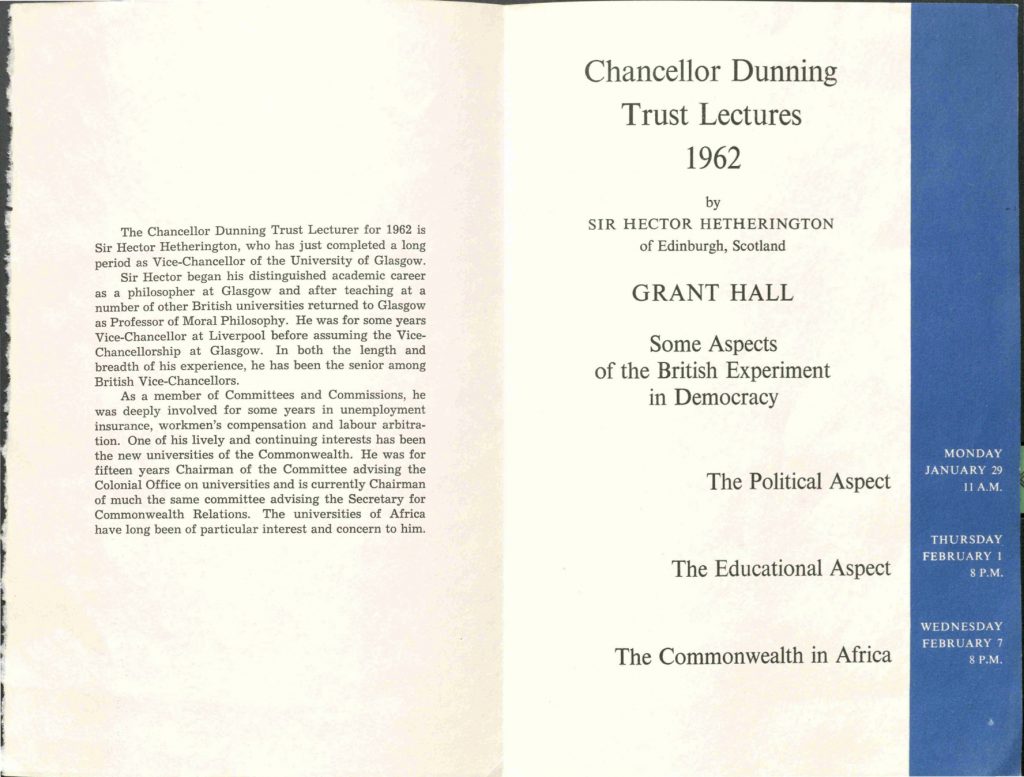
Hector Hetherington was a Scottish philosopher. He studied at the University of Glasgow and Oxford. At the time of his talk, Hetherington was Vice-Chancellor of Liverpool University. He began his academic career in the philosophy department at the University of Glasgow, after which he held various appointments at several British universities, before returning to Glasgow as a Professor of Moral Philosophy. For several years, he was involved in committees relating to unemployment insurance, workmen’s compensation, and labour arbitration. He worked in the Secretariat of the 1919 International Labour Conference of the League of Nations in Washington, D.C. From 1930 to 1932 he was a member of the Royal Commission on Unemployment Insurance and in 1938 was appointed as Chairman of the Royal Commission on Workmen’s Compensation. He was knighted in 1936 in recognition of his academic work and public service and was made a Grand Knight Cross of the Order of the British Empire in 1962. He had varied interests, including in the new universities of the Commonwealth. He was, for 15 years, the Chairman of the Committee advising the Colonial Office on universities. He received numerous awards and honours, including 13 honorary degrees. He died in 1965.
By all accounts, Hector Hetherington was warmly received by staff and students at Queen’s, with students talking to him at length in the coffee shop at breakfast, at tea in the afternoon, or in longer sessions in the evenings. Hetherington gave three lectures addressing different components of British democracy: The Political Aspect, The Educational Aspect, & The Commonwealth in Africa. In his first lecture, he gave an overview of the issues confronting liberal democracy in Britain, including the tendency of politicians to battle for offices, not causes, and thereby sacrifice the long-term good of the country for their own electoral gains. He also outlined three other components of the democratic process: the impartial law court system, the highly professional civil service, and the extensive and reliable news agency.
The problem, as he saw it, was a growing amount of work for all three institutions, leading to decreased standards in the media and the civil service. As a result, the press fails to show political and moral responsibility and loses its power as a political force. The safeguard against this, he stated, was the moral and intellectual fibre of the individual citizen, which depended upon public education. He further developed the importance of education in democracy in his second lecture. His third lecture drew on his experience in higher education policy to address the ongoing work of decolonization in Africa. He argued that the new nations of the continent required not only material support from the Commonwealth, but also to learn from others’ experience in self-government and education. He particularly highlighted the work of universities established in Africa under the oversight of the University of London in the 1940s as both a symbol and instrument of independence, while warning against any attempts to recreate English universities in Africa. He advocated for Commonwealth scholars to dedicate some time to teaching in Africa, until that educational system became self-sufficient.
Listen to an excerpt from his lectures.
Download the Hector Hetherington Transcript (PDF)

